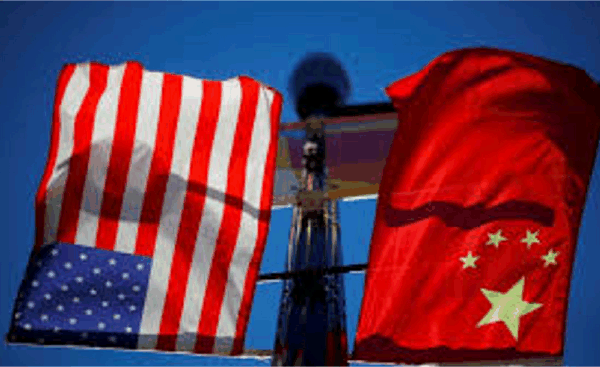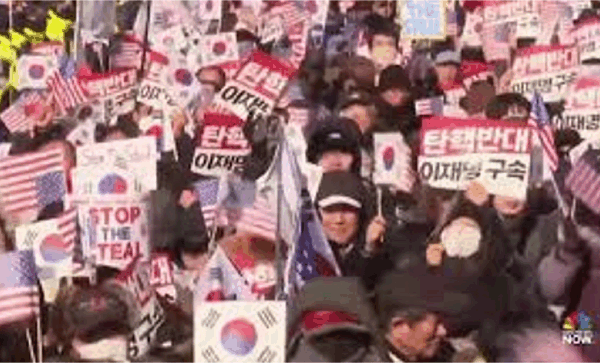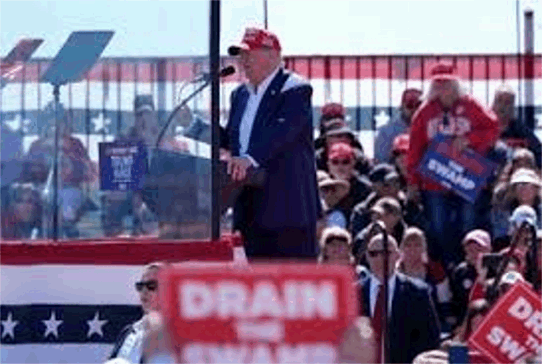피드롤별
Aggiornamento 2021년 11월 14일 0
모든 국가의 중앙은행은 자신이 대표하는 국가의 경제가 건전하도록 항상 노력하고 있습니다. 이는 무엇보다도 외환 시장에서 경쟁 우위를 유지할 수 있도록 통화가 강해지도록 적절한 조치를 취하는 것을 의미합니다. 그러나 때로는 중앙은행이 자국 통화의 가치를 떨어뜨려 약하게 만들 때 그 반대가 이루어지는 경우도 있습니다. 중앙은행이 자국 통화를 평가절하하는 이러한 과정을 통화전쟁이라고 합니다.
일반적으로 국가 통화의 강도는 다음을 포함한 다양한 요인에 의해 결정됩니다.
이자율 – 높은 이자율은 고수익 채권 및 기타 자본 시장 상품에서 이익을 얻고자 하는 투자자를 끌어들이기 때문에 통화를 더 강하게 만듭니다.
경제 정책 – 여기에는 인플레이션, 부패 및 국가 내에서 돈이 소비되는 방식을 통제하는 기타 모든 요소가 포함됩니다.
정부 안정성 – 투자자들은 투자가 안전하다고 생각하는 국가에 투자하는 것을 선호하고 분쟁과 전쟁이 있는 국가를 피합니다.
그럼에도 불구하고 이러한 모든 요소는 상대적입니다. 왜냐하면 다른 국가와 비교해야 하기 때문입니다. 예를 들어, 미국의 금리는 현재 0.75%로 낮지만, 미국 달러는 여전히 강세를 보이고 있습니다. 왜냐하면 일본(0.00%), 유럽(0.00%), 스위스(-0.75%) 등 다른 국가에 비해 그 금리가 여전히 강하기 때문입니다. 관심도는 여전히 높다. 다른 모든 요소 역시 상대적이며 다른 국가의 상태와 비교해서만 측정됩니다.
국가가 환율 전쟁을 벌이는 이유는 무엇입니까?
국가가 국제 시장에서 수출을 늘리고 싶다면 그렇게 할 수 있습니다. 여러 국가에서 자동차와 같은 동일한 제품을 수출하고 있지만 환율이 다르다고 상상해 보세요. 당연히 수입업자는 동일한 제품을 구매하는 데 가능한 한 적은 돈을 사용할 수 있도록 통화가 가장 약한 수출업자를 선택할 것입니다. 위안화가 유로화보다 약하기 때문에 독일과 같은 다른 자동차 수출국에 대한 수출을 늘리기 위해 중국이 통화 평가절하를 하는 것을 보면 이를 알 수 있습니다.
국제 시장에서 경쟁 우위를 확보하는 것 외에도 국가는 지역 경제를 활성화하기 위해 환율 전쟁을 시작할 수도 있습니다. 수출 부문이 호황을 누리면 더 많은 기업이 수출용 상품을 생산하고 이로 인해 고용이 창출되고 GDP가 증가합니다.
환율 전쟁은 그 자체로는 끔찍한 것이 아니지만 공정한 경쟁의 개념에 어긋납니다. 이는 모든 정부가 높은 수준의 정부를 달성하여 다른 국가보다 뛰어난 성과를 낼 수 있도록 장려하는 것입니다. 따라서 통화 전쟁은 한 국가가 지름길을 사용하여 경쟁사보다 앞서 나가려는 이기적인 욕구로 간주됩니다.
무엇이 환율 전쟁을 일으키는가?
통화 전쟁은 의도적으로 통화 가치를 낮추는 적극적인 과정이며, 위에서 언급한 요인에 따라 통화 강도가 항상 변하기 때문에 일회성 조치가 아닙니다. 따라서 통화 전쟁을 계속하려면 국가는 통화 가치가 원하는 위치에 있는지 확인하기 위해 다음 조치를 지속적으로 모니터링해야 합니다.
금리 인하
일석이조이기 때문에 환율전쟁을 시작하는 가장 효과적인 방법이다.
이자율이 낮아지면 사람들은 은행에서 더 많은 대출과 신용을 받게 되며, 이는 자금 공급을 증가시킵니다. 사람들은 돈으로 더 많이 구매하고, 수요 증가로 인해 상품 가격이 상승하고 궁극적으로 인플레이션이 상승합니다. 기억하시겠지만, 통화 강도를 결정하는 한 가지 요소는 인플레이션이며, 이 조치로 인해 통화는 다른 통화에 비해 강도가 약해집니다.
낮은 이자율은 어느 누구도 낮은 이자율을 적용한 국가의 자산을 사고 싶어하지 않기 때문에 외국인 투자를 위축시킵니다. 이로 인해 투자자는 투자를 철회하고 이를 사용하여 다른 국가에 투자하게 됩니다. 이는 동시에 다른 통화의 가치를 높이는 동시에 귀하의 통화 가치를 낮춥니다.
국가 인구의 저축이 감소합니다. 금리가 낮아지면 저축이 불리해지고 사람들은 자산을 돈으로 팔아 경제의 화폐 공급이 증가합니다.
낮은 이자율은 캐리 트레이드에서 자금 조달 통화로 사용하기에 유리한 통화를 만듭니다. 투자자는 금리가 낮은 나라에서 돈을 빌려 금리가 높은 나라에 투자함으로써 금리차를 얻을 수 있다. 캐리 트레이드에 참여함으로써 자금 조달 통화는 본질적으로 판매되고 있으며, 아시다시피 통화를 판매하면 수요가 감소하여 가치가 낮아집니다.
금리 인하는 환율 전쟁에서 매우 효과적인 도구이자 가장 널리 사용되는 조치입니다.
화폐 공급 증가
일반적으로 정부는 돈을 모으는 것을 더 어렵게 만들려고 노력하지만, 쉽게 만들 수도 있습니다. 통화 공급을 늘리기 위해 정부는 종종 은행에서 정부 및 민간 채권을 구매하여 공개 시장 운영에 참여합니다. 이것도 파급 효과가 있습니다.
이는 해당 채권의 가격을 인상하여 불리하게 만듭니다.
다른 사람들에게 말을 걸 수 있습니다. 대신, 그 사람들은 돈을 쓸 것이고, 유통되는 돈을 늘리고 인플레이션을 높일 것입니다. 동시에 채권 가격이 높을수록 수익률도 낮아져 더 높은 가격에 채권을 감당할 수 있는 사람에게도 불리하게 됩니다.
은행은 더 많은 돈을 갖게 될 것이고, 그들의 금고에 있는 이러한 갑작스러운 돈의 증가를 빌리는 것을 장려하기 위해 이자율을 낮출 것입니다. 금리가 낮아지면 차입금과 신용이 늘어나 화폐유통량이 다시 늘어난다.
이러한 조치를 양적완화라고도 하는데 정부는 상시 개입하지만 일시적인 경기부양을 위한 단기채권에 한한다. 장기적으로 볼 때 이는 환율 전쟁을 촉발하는 환율 조작의 한 형태로 볼 수 있습니다. 이 정책이 실행되는 좋은 예는 유럽중앙은행(ECB)이 2015년 3월부터 매달 600억 유로 상당의 채권을 매입하는 것에서 볼 수 있습니다. 유럽 채권 수익률은 급락했고 유로화 가치도 급락했습니다.
정부는 근로자의 임금을 직접 인상해 통화공급을 늘릴 수도 있다. 최저임금 인상과 공무원 인상은 공무원들의 손에 더 많은 돈을 쥐어주어 그들이 더 많은 돈을 지출할 수 있게 하고 인플레이션을 높일 수 있게 해줍니다.
다른 나라에 투자하기
이는 한 국가가 다른 국가의 자산과 기업을 구매하여 해당 국가의 경제를 자국보다 빠르게 구축하는 매우 현명한 조치입니다. 중국은 지난 몇 년 동안 전 세계 여러 국가에 투자하는 이러한 움직임에 참여해 왔습니다. 다른 나라에 투자하려면 다른 나라를 위해 통화를 팔아야 합니다. 예를 들어, 중국은 미국 기업과 자산을 사기 위해 위안화를 팔고 미국 달러를 살 것입니다. 통화를 구매하면 수요가 증가하는 반면 위안화 수요는 감소하여 결국 달러 대비 위안화 가치가 하락합니다.
환율 전쟁의 영향
이제 그것이 어떻게 시작되었는지 알았으니, 통화 전쟁이 진행되는 동안 국가 경제는 어떻게 될까요? 실행 가능한 경제 전략인가? 그럴 수도 있지만, 목적에 부합하는 경우에만 가능합니다. 우리가 이미 살펴보았듯이, 한 국가가 통화 전쟁에 참여하기를 원하는 데에는 몇 가지 타당한 이유가 있지만 그렇게 함으로써 여러 가지 면에서 경제에 위험을 초래할 수도 있습니다.
인플레이션 위험
수출 주도 경제에서 수출을 장려하기 위해 통화 전쟁이 시작되면 해당 경제 부문이 활성화될 것입니다. 그 결과 수출업자가 부유해지며, 수출업자는 더 많은 제품을 수출할 수 있게 됩니다. 그러면 이들 수출업자들은 경제에 눈을 돌리고 돈을 쏟아부어 인플레이션을 일으키고 때로는 하이퍼인플레이션까지 일으킬 것입니다.
이 외에도 통화 공급을 늘리기 위한 다른 정부 개입도 인플레이션을 유발할 수 있습니다. 베네수엘라를 살펴보겠습니다. 그 나라는 석유 침체의 영향으로 고통받고 있었고, 경제도 정체되고 있었습니다. 이에 대응하기 위해 정부는 돈을 인쇄하고 자산을 구매하여 통화 공급을 늘렸습니다. 지금 인플레이션율은 700%가 넘고, 모두가 현금 뭉치를 들고 다니기 때문에 100볼리바르 지폐를 폐기할 계획까지 세우고 있습니다.
이것이 환율 전쟁으로 인한 것이 아닐 수도 있지만 정부의 개입이 어떻게 인플레이션으로 이어질 수 있는지 알 수 있습니다. 통화 전쟁은 위에서 설명한 조치를 시행할 때마다 국가 경제를 이러한 위험에 빠뜨립니다.
비싼 수입품
낮은 환율로 수출할 수 있다는 단점은 통화 약세로 인해 수입품 가격이 매우 비싸진다는 것입니다. 어느 국가도 자급자족하지 않는 한, 수입하는 데 훨씬 더 많은 비용이 들고, 그로 인해 국가의 무역 적자가 증가합니다. 이로 인해 정부는 더 많은 부채를 떠맡게 되고, 부채 상환 비용이 더욱 비싸지기 때문에 문제는 더욱 악화됩니다.
부의 격차 증가
통화 전쟁은 항상 국가 전체에 이익이 되는 것은 아닙니다. 왜냐하면 선택된 소수만이 전쟁의 전리품을 얻을 수 있기 때문입니다. 중국과 같은 수출 주도 경제의 경우 환율 전쟁으로 인해 부의 격차가 커지는 것을 볼 수 있습니다. 수출업자들은 인플레이션을 높이면서 다른 사람들이 상품을 구매하기 어렵게 만드는 동시에 혜택을 누리고 있습니다. 중국은 미국에 이어 두 번째로 많은 백만장자를 보유하고 있지만 하루 1.25달러 미만으로 생활하는 중국인이 너무 많습니다. 정부가 부의 분배를 위한 추가 조치를 취하지 않는 한, 환율 전쟁은 소수에게만 유리할 것입니다.
시장 불안정
모든 국가는 항상 자신의 경제를 개선하려고 노력하기 때문에 국가가 서로를 능가하려고 시도함에 따라 통화 전쟁은 결국 통제할 수 없게 됩니다. 이는 대공황 이후 1930년대 여러 통화가 통화 전쟁을 벌여 상황을 더욱 악화시켰을 때 나타났습니다. 불안정을 종식시키기 위해 관련 주요 국가인 영국, 프랑스, 미국은 경제 안정에 합의해야 했습니다.
이 외에도 오늘날 미국과 중국 사이에서 볼 수 있는 것과 같은 명백한 적대감이 있습니다. 환율 전쟁을 억제하기 위해 트럼프는 중국산 수입품에 대한 무역 관세를 제안하여 중국산 수요를 줄였습니다.
상품. 중국의 환율전쟁으로 시작된 양국 간 적대감은 매우 명백하다.
암시장
통화를 특정 수준으로 유지하려는 시도에도 불구하고 병행 시장이 종종 발생합니다. 나이지리아에서는 나이라 가치 하락으로 인해 나이지리아 정부가 환율을 달러당 197-199로 고정했습니다. 대신 미국 달러가 약 350나이라에 거래되는 병행 시장이 생겨났습니다.
이로 인해 나이지리아 정부가 나이라를 변동 금리로 재개해야 할 때까지 통화 인플레이션이 치솟았습니다. 일반적으로 암시장은 착취적이며 결국 통화가 변동된 상태로 방치되는 경우보다 더 큰 혼란을 초래합니다.
환율 전쟁의 예
통화 전쟁은 수출이나 지역 경제를 활성화하기 위해 수십 년 동안 다양한 정부에 의해 시행되었습니다. 그러나 모든 통화 전쟁이 중요한 것은 아니며, 전쟁의 영향을 전 세계적으로 느끼려면 엄청난 경제 규모를 갖춘 국가가 필요합니다. 주요 통화 전쟁 중 일부에는 스위스, 중국이 포함되며 일부는 유로존이라고 할 수도 있습니다.
2011년 9월 스위스 국립은행(SNB)은 스위스 프랑을 유로화에 대해 1.2의 환율로 고정했습니다. 스위스를 안전한 피난처로 만든 유로존의 경제적 불확실성으로 인해 프랑 가치가 급등했기 때문입니다. 페그가 없었다면 프랑의 가치는 훨씬 더 높아져 수출업자의 거래가 더 어려워졌을 것입니다. SNB는 나중에 2015년 1월에 통화 고정을 해제하여 프랑 가치가 일시적으로 급등했습니다.
ECB는 채권 매입 프로그램과 금리 인하 등 유로화 가치를 낮추기 위한 조치도 취했다. ECB는 이번 조치가 지역 경제를 활성화하기 위한 것이지 경쟁 우위를 확보하기 위한 것이 아니라고 말하며 자신의 결정을 옹호했습니다. 여러 유럽 국가가 경제적 혼란에 직면했고 스페인과 같은 ECB로부터 구제 금융을 받아야 했기 때문에 이는 부분적으로 사실입니다.
중국의 경우, 그들은 2003년부터 2014년까지 매년 3,000억 달러 규모의 해외 자산을 매입하여 수년간 자국 통화를 평가절하해 왔습니다. 2016년 중국 정부는 위안화의 추가 약세를 막기 위해 5,700억 달러 상당의 자산을 매각하여 이러한 조치를 뒤집기 시작했습니다. 이는 도널드 트럼프가 중국을 두고 중국을 환율조작국으로 지정해야 한다고 주장한 것과 정반대인데, 이는 미 재무부가 그렇게 하기 전에 요구하는 기준에 맞지 않는다.
현재 도널드 트럼프 미국 대통령은 독일과 일본 등 다른 국가들이 환율전쟁을 벌이고 있다고 비난하고 있다. 그는 이들 국가가 수출이 쉽게 받아들여질 수 있도록 통화 가치를 적극적으로 낮게 유지하고 있다고 주장합니다. 이미 이들 국가 지도자들은 혐의를 적극적으로 부인했지만, 이러한 주장은 이미 시장에 충격을 안겼다. 다른 국가의 통화 조작을 비난하는 것은 다른 국가가 해당 국가와 거래하는 것을 방해하고 제재로 이어질 수도 있기 때문에 심각한 주장입니다.
What is a currency war?
TopBrokers.com 후원 – 최고의 외환 브로커에 대한 포털
by feedroll
Aggiornamento del 14 November 2021 0

Every country’s central bank is always working to ensure the economy of the country they represent is healthy. This means, among other things, taking appropriate measures to ensure their currency is strong so that they can maintain a competitive advantage in the Forex market. However, sometimes the opposite is done when the central bank devalues their currency, making it weaker. This process of a central bank devaluing its own currency is what is referred to as a currency war.
Normally, the strength of a country’s currency should be determined by various factors including:
- interest rates – higher interest rates make a currency stronger because they attract investors who would like to profit from higher yielding bonds and other capital market instruments
- economic policies – these include inflation, corruption and all other factors that control how money is spent within the country
- government stability – investors prefer to invest in countries where they feel their investment is safe, and avoid countries with conflict and war
Nevertheless, all these factors are relative, because they have to be compared against other nations. For example, interest rates in the US are low right now, 0.75%, but the US dollar is still strong because, compared to other countries like Japan (0.00%), Europe (0.00%) Switzerland (-0.75%), that rate of interest is still high. All other factors, too, are relative and are only measured in comparison to other countries’ state.
Why would a country engage in a currency war?

A country can choose to do so if they want to boost their exports in international markets. Imagine if several countries are exporting the same products, say, automobiles, yet they have different exchange rates. Naturally, the importer would choose the exporter with the weakest currency so that they could use as little money as possible to buy the same product. You can observe this in China’s currency devaluation in order to boost their exports against other automobile exporters like Germany since the yuan is weaker than the euro.
Besides gaining a competitive advantage in the international markets, a country can also start a currency war to boost local economy. When the export sector is booming, more companies come up to produce goods for export, and this creates employment and boosts GDP.
Currency wars are not terrible on their own, but they go against the concept of fair competition. The idea is to encourage every government to achieve high standards of government so that they can outperform other countries. Currency wars are thereby seen as one country’s selfish need to get ahead of its competitors by using a shortcut.
What makes a currency war?
A currency war is an active process of intentionally lowering your currency’s value, it is not a one-time move since currency strength is always changing depending on the factors mentioned above. Thus, to keep a currency war going, a country must constantly monitor the following measures to ensure the value of their currency is where they want it to be:
Lowering interest rates
This is the most effective way to start a currency war because it hits several birds with one stone.
- With lower interest rates, people take more loans and credit from banks, which increases the money in supply. People buy more with the money, and the increased demand causes higher prices for the goods and ultimately, inflation rises. As you remember, one factor that determines currency strength is inflation, and this action causes a currency to lose strength relative to other currencies.
- Low interest rates discourage foreign investment because no one wants to buy assets from a country with low interest rates. This causes investors to withdraw their investments and using it to invest in another country. This simultaneously lowers your currency value while raising another currency’s value
- Saving is reduced among the country’s population. With the lower interest rates, saving becomes unfavourable and people sell their assets for money, increasing money supply in the economy
- Low interest rates make a currency favourable for use as the funding currency in carry trades. An investor can borrow money from the country with low interest rates and invest in another with higher interest rates, thereby gaining the difference in interest rates. By engaging in a carry trade, the funding currency is essentially being sold, and as you know, selling a currency reduces demand hence lowering the value.
Lowering interest rates is a very effective tool in currency wars and it is the most widely used measure.
Increasing money supply
Normally, the government tries to make it harder to get money, but they can just as easily make it easier. To increase money supply, governments often engage in open market operations by buying bonds, both government and private, often from banks. This also has a ripple effect:
It raises the price of those bonds, making them unfavourable to other people. Instead, those people will spend the money, increasing the money in circulation and raising inflation. At the same time, higher prices of bonds will also lower their yield, also making them unfavourable even to those who can afford them at the higher price
Banks will have more money, and will lower interest rates in order to encourage the borrowing of this sudden increase of money in their coffers. With lower interest rates, borrowing and credit increases, again increasing the amount of money in circulation
These measures are also called quantitative easing, and governments engage in them all the time, but only for short-term bonds to temporarily stimulate the economy. When done in the long-term, this can be seen as a form of currency manipulation sparking a currency war. A good example of this policy in action can be observed with the European Central Bank (ECB) buying 60 billion euro worth of bonds every month since March 2015. European bond yields fell drastically and the value of the euro also did.
The government can also increase money supply by directly increasing workers’ pay. Increases in minimum wage and raises for civil servants places more money in their hands, letting them free to spend more and raise inflation.
Investing on other countries
This is a very smart move where a country buys assets and businesses in another country, building that country’s economy faster than their own. China have engaged in this move for the past few years where they are seen investing in several countries around the world. If you want to invest in another country, you have to sell your currency for the other. For example, China would sell the yuan and buy, say, the US dollar, in order to buy American companies and assets. Buying a currency increases its demand while reducing the demand of the yuan, eventually devaluing the yuan against the dollar.
Effects of currency wars
Now that you know how they are started, what happens to a country’s economy during a currency war? Is it a viable economic strategy? It can be, but only if it serves a purpose. As we have already seen, there are several good reasons why a country may want to engage in a currency war, but by so doing they also risk the economy in several ways:
Risk of inflation
If a currency war was started in order to encourage exports in an export-led economy, it would boost that sector of the economy. The result would be the enrichment of exporters, who will be able to export more of their products. These exporters will then turn to their economy and flood it with money, creating inflation and sometimes even hyperinflation.

Besides this, other government interventions to increase money supply can also cause inflation. Let’s look at Venezuela – the country was suffering from the effects of the oil slump, and the economy was stalling. To counter, their government increased money supply by printing money and buying assets. Right now, the inflation rate is above 700% and they are even planning to scrap the 100 bolivar bill because everyone is carrying wads of cash.
While this may not have been caused by a currency war, you can see how governments’ intervention can lead to inflation. Currency wars place a country’s economy at this risk whenever they implement the measures outlined above.
Expensive imports
The flipside of being able to export at a lower rate is that imports become very expensive with your weakened currency. Unless a country is self-sufficient, which none of them are, it costs a lot more to import, thereby increasing the country’s trade deficit. This forces the government to take more debt, which further exacerbates the problem because repayment of the debt becomes more expensive.
Increasing wealth gap
Currency wars don’t always benefit the entire country, because only a select few gain the spoils of the war. In the case of an export-led economy like China, you can see the wealth gap growing as a result of their currency war. The exporters are enjoying the benefits while increasing inflation which makes it harder for others to afford goods. China has the second highest number of millionaires after the US, yet there are so many Chinese living on under $1.25 a day. Unless the government takes further measures to distribute wealth, currency wars are bound to favour only a few.
Market instability
Since every country will always try to improve their own economy, currency wars eventually spin out of control as countries attempt to outdo one another. This was seen in the 1930s after The Great Depression when several currencies were in a currency war that only made matters worse. To end the instability, the main countries involved, Britain, France and the US, had to come to an agreement to stabilize their economies.
Besides this, there’s the obvious hostility such as what we’re seeing today between the US and China. To curb the currency war, Trump is proposing trade tariffs on Chinese imports to decrease demand for Chinese goods. There is a very obvious hostility between the two countries that was started due to China’s currency war.
Black markets
Despite attempts to keep currency at a certain level, a parallel market often arises. In Nigeria, due to the depreciating naira, Nigeria’s government fixed the exchange rate at 197-199 per dollar. Instead, there arose a parallel market where the US dollar was being exchanged at around 350 naira.

This caused soaring inflation in the currency until the Nigerian government had to resume the naira to a floating rate. As a rule, black markets are exploitive, and they end up causing more chaos than if the currency was left floating.
Examples of currency wars
Currency wars have been implemented by various governments over the decades either to boost exports or the local economy. However, not all currency wars have been significant, and it takes a country with a huge economy for the effects of the war to be felt globally. Some of the major currency wars include those taken by Switzerland, China and some might even say the Eurozone.
On September 2011, the Swiss National Bank (SNB) pegged the Swiss franc at a rate of 1.2 against the euro. This was because the value of the franc was soaring due to economic uncertainties in the Eurozone that made Switzerland a safe haven. Without the peg, the franc’s value would have gone much higher making it harder for exporters to trade. The SNB later de-pegged their currency in January 2015 causing the value of the franc to soar temporarily.

The ECB has also taken measures to keep the value of the euro down such as the bond-buying program and the reduction of interest rates. The ECB defends its decision by saying that the measures are strictly meant to boost the region’s economy and not to gain any competitive advantage. This is partly true because several European countries have faced economic turmoil and required bailouts from the ECB such as Spain.
As for China, they had been devaluing their currency for years through buying foreign assets worth $300 billion annually from 2003 to 2014. In 2016, the Chinese government started to reverse this action by selling assets worth $570 billion to stop the yuan from weakening further. This is the opposite of what Donald Trump has been saying about China, claiming that China should be declared a currency manipulator, but it doesn’t fit the criteria which the US Treasury Department requires before doing so.
Currently, President Donald Trump has been pointing fingers at other countries like Germany and Japan for engaging in currency wars. He claims that these countries are actively keeping the value of their currencies low so that their exports are readily accepted. Already, these countries’ leaders have actively denied the accusations, but the claims have already sent shock waves through the markets. Accusing another country of currency manipulation is a serious claim because it discourages other countries from trading with that country and may even lead to sanctions.
Sponsored by TopBrokers.com – portal about Top Forex Brokers










